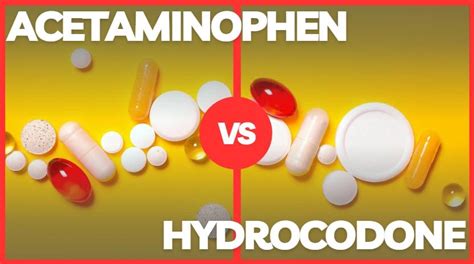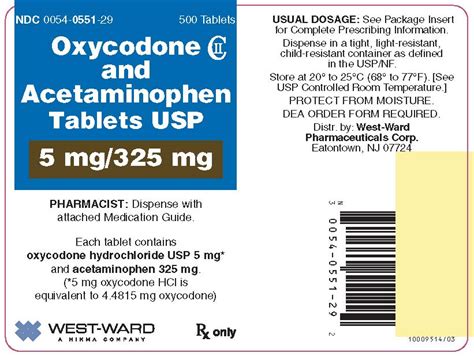12+ Strategies To Stop Drinking And Stay Sober

Overcoming an addiction to alcohol is a challenging and courageous journey, one that requires a combination of strategies, support, and determination. For individuals struggling with alcohol use disorder, stopping drinking is just the first step; maintaining sobriety is a lifelong commitment that involves continuous effort and growth. Here, we’ll explore 12+ strategies that can help individuals stop drinking and stay sober, emphasizing the complexity and individuality of the recovery process.
1. Seek Professional Help
Engaging with healthcare professionals, such as doctors, therapists, or counselors, is a crucial initial step. These experts can provide a comprehensive assessment, recommend appropriate treatment options, and offer ongoing support. For some, medication may be prescribed to manage withdrawal symptoms or reduce cravings. Others may benefit from therapy, such as cognitive-behavioral therapy (CBT), to address underlying issues that contribute to alcohol use.
2. Join a Support Group
Support groups, like Alcoholics Anonymous (AA) or SMART Recovery, offer a community of individuals who are going through similar experiences. Sharing stories, receiving support, and gaining insights from peers can be incredibly powerful. These groups provide a safe space to discuss challenges, celebrate successes, and learn from others’ strategies for maintaining sobriety.
3. Identify and Avoid Triggers
Understanding what triggers the desire to drink is essential for preventing relapse. Common triggers include stress, certain social situations, or emotional states like anxiety or depression. Once triggers are identified, individuals can develop strategies to avoid or manage them. This might involve changing social circles, finding healthy ways to manage stress (like exercise or meditation), or seeking therapy to address underlying emotional issues.
4. Build a Sober Network
Surrounding oneself with people who support sobriety can make a significant difference. This might involve building new relationships with like-minded individuals or nurturing existing ones that are positive and supportive. Having a strong, sober network can provide encouragement, companionship, and a sense of belonging, all of which are crucial for long-term sobriety.
5. Find Healthy Alternatives
Engaging in activities that bring joy and fulfillment can help fill the void left by alcohol. This could be anything from hobbies, sports, and creative pursuits to spending time in nature or learning new skills. Finding healthy alternatives not only keeps one occupied but also provides a sense of purpose and satisfaction, reducing the likelihood of turning to alcohol.
6. Practice Self-Care
Taking care of one’s physical, emotional, and mental health is vital for maintaining sobriety. This includes eating a balanced diet, getting regular exercise, and ensuring adequate sleep. Practicing mindfulness, meditation, or yoga can also help manage stress and improve overall well-being. Self-care activities remind individuals that they are worth the effort and investment, reinforcing their commitment to sobriety.
7. Set and Achieve Goals
Having goals, whether short-term or long-term, provides direction and motivation. These could be related to personal growth, career aspirations, or improving relationships. Achieving goals, no matter how small they may seem, can boost self-esteem and reinforce the benefits of sobriety, encouraging individuals to continue on their path.
8. Learn to Manage Relapse
Relapse is a common part of the recovery journey for many. Instead of viewing relapse as failure, it’s essential to learn from it. Understanding what led to the relapse and developing strategies to prevent similar situations in the future is crucial. This might involve revisiting therapy, adjusting one’s support network, or finding new coping mechanisms.
9. Stay Engaged and Active
Remaining engaged and active, whether through work, volunteering, or other activities, can help maintain a sense of purpose and fulfillment. This not only distracts from the desire to drink but also contributes to an overall sense of well-being and satisfaction with life.
10. Forgive Yourself and Others
Holding onto guilt, shame, or resentment can hinder the recovery process. Practicing forgiveness, both towards oneself and others, can be liberating. It allows individuals to release negative emotions and focus on their future, rather than being held back by the past.
11. Embrace the Journey
Recovery is a journey, not a destination. It involves growth, learning, and continuous self-improvement. Embracing this journey, with all its challenges and triumphs, can lead to a more fulfilling and meaningful life. It’s about discovering who one is without alcohol and finding happiness in sobriety.
12. Celebrate Milestones
Acknowledging and celebrating milestones in recovery, whether it’s a day, a week, a month, or a year sober, is a powerful way to reinforce progress and motivation. Celebrations can be personal, shared with close ones, or marked within a support group, serving as a reminder of how far one has come and the strength of their commitment to sobriety.
Additional Strategies
- Keep a Journal: Writing down thoughts, feelings, and experiences can provide insight into one’s journey and serve as a tool for managing emotions and tracking progress.
- Stay Educated: Continuously learning about addiction, recovery, and personal growth can empower individuals with the knowledge and strategies needed to maintain sobriety.
- Find Healthy Ways to Cope with Emotions: Developing strategies to manage a range of emotions, from happiness and sadness to anger and frustration, is essential for avoiding the temptation to drink.
Conclusion
Stopping drinking and maintaining sobriety require a multi-faceted approach that addresses physical, emotional, and psychological aspects of alcohol use disorder. By combining these strategies and finding what works best for them, individuals can embark on a successful journey towards sobriety and a more fulfilling life. Remember, recovery is not a solo endeavor but a path that can be navigated with the right support, mindset, and strategies.
What are the first steps to take when trying to stop drinking?
+The first steps involve seeking professional help, joining a support group, and identifying triggers. Engaging with healthcare professionals can provide a comprehensive approach to managing withdrawal symptoms and addressing underlying issues. Support groups offer a community that understands the challenges of recovery and can provide valuable advice and encouragement.
How can I manage cravings and avoid relapse?
+Managing cravings and avoiding relapse can be achieved by identifying and avoiding triggers, finding healthy alternatives to alcohol, practicing self-care, and staying engaged in recovery activities. It’s also crucial to learn from relapses and adjust strategies accordingly. Relapse is not a failure but a setback from which one can learn and grow.
What role does forgiveness play in the recovery process?
+Forgiveness, both towards oneself and others, is a powerful tool in the recovery process. It allows individuals to release negative emotions such as guilt, shame, and resentment, which can hinder recovery. Forgiveness is about personal liberation and moving forward, not about condoning past behaviors or forgetting the past.



